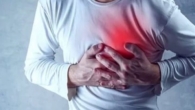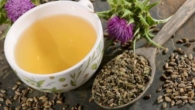
A cheap vegetable reduces the risk of death from various causes
A study of the habits of people in countries with the highest life expectancy showed that eating this cheap vegetable helps to live longer. Thanks to it, the risk of death from the consequences of cardiovascular diseases and other causes is reduced.
Well-known British nutritionists Juliet Callow and Sarah Brewer advised to use cabbage to prolong life. Experts refer to a study published by the American Journal of Clinical Nutrition, according to which cruciferous vegetables can help people live longer by reducing the risk of heart disease.
“Eating more different types of cabbage can help lower blood pressure and protect against strokes. In addition, people who eat a lot of cruciferous vegetables are less likely to suffer from colon cancer,” experts said.
According to them, the high consumption of cabbage distinguishes the diet of people living in Sardinia, which is considered the “blue zone” – a region with a high life expectancy of the local population. The author of the theory of the “blue zones” of the planet, researcher Dan Buettner established that the inhabitants of Sardinia are distinguished by a special love for cruciferous vegetables – especially cabbage and kohlrabi. Later, it was found that the available, cheap vegetables have the ability to activate the protein Nrf2, which stimulates the body's production of its own antioxidant enzymes, which provide it with protection against inflammation. Thus, this product protects against heart disease.
Another study that looked at the diet, lifestyle and medical histories of 134,000 Chinese men and women found a link between a high consumption of cruciferous vegetables and a reduced risk of death from various types of cancer.
“Three servings of these vegetables per week was associated with a 41 percent reduction in the risk of prostate cancer. A few servings of cabbage a week – with a 38 percent reduction in the risk of pancreatic cancer. One portion a day – with a reduction in the risk of breast cancer by more than 50 percent,” its authors reported.









Leave a Reply